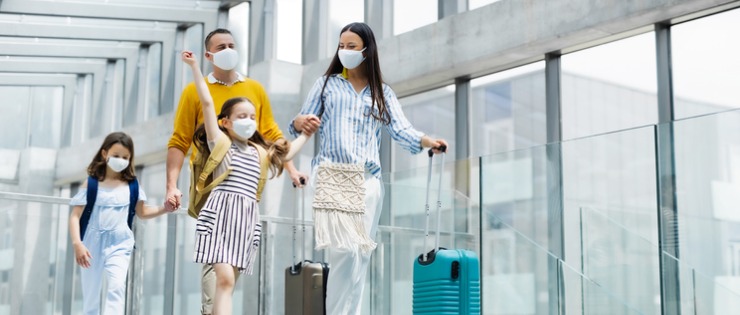
Australians are known for their love of overseas travel. Now that our international borders have re-opened, many Aussies are dusting off their suitcase and making travel plans. Part of the planning should include travel insurance and what the policy will and won’t cover you for in the event that COVID-19 causes a cancellation, extension or medical expenses. Find out what you should consider when reviewing your travel insurance policy.
What Do You Need to Consider with Travel Insurance Now?
Before the pandemic, most travellers took out a travel policy barely bothering to read the fine print. However, travellers are now much more concerned about what their travel insurance does and doesn’t cover. Remember to read the Product Disclosure Statement and ask questions if you’re unsure before signing up for a policy. Some circumstances you need to consider with travel insurance and COVID-19 are:
If you or a travelling family member tests positive to COVID-19 pre-departure and you need to cancel your trip;
If you or a travel companion tests positive for COVID-19 while away and incurs medical expenses; or
If you or a travel companion tests positive for COVID-19 while away, extending your stay to self isolate/recover.
Cancelling Your Trip
With COVID-19 circulating in the Australian community, it’s possible that you could be infected just before you’re due to depart for your trip. With seven days of mandatory isolation, you may need to cancel or postpone. There’s a risk that another member of the family will be infected after you and need to serve their seven days in isolation. When your trip is so close, it’s likely you will lose deposits and if not, the full payment for some flights, accommodation and tours booked. A travel insurance policy can help cover some or all of these expenses. Find out what is and isn’t covered and the maximum dollar value you will be able to claim.
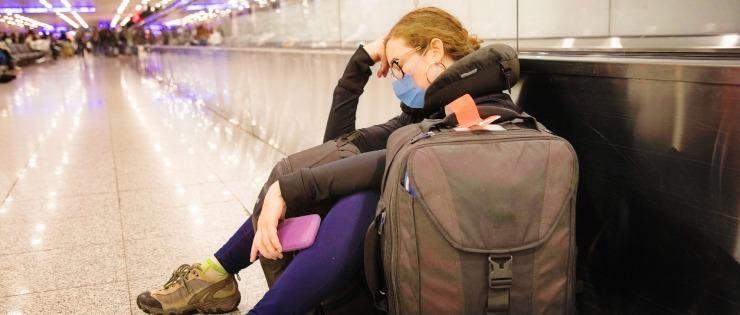
Overseas Medical Expenses
You may leave Australia well, but become infected while in transit or at the destination. If you suffer a severe case of COVID-19 and you require care in hospital, you’ll want a policy that will cover the hospital bill. A stay in an intensive care unit in the United States can cost as much as $20,000 per night. Singapore requires visitors to purchase travel insurance that has minimum coverage of SGD $30,000 for medical expenses. Check with your destination country if there are travel insurance requirements and what medical care expenses are covered.
Extending Your Stay
You may need to stay longer than you planned because you test positive or one of your travelling companions does. If you are travelling with your family and one after the other tests positive over multiple weeks, your stay could be quite lengthy with a large accommodation bill. Not all travel insurance policies cover expenses related to a longer stay in accommodation due to a COVID-19 infection.
Not all travel policies cover COVID-19 related expenses, and the policies that do can vary greatly in what is and isn’t covered. You’ll need to do your homework and know what type of coverage you’re looking for. There are also some potential expenses that aren’t covered by any travel policy, such as a government travel ban. You could be out of pocket in several circumstances, so decide what financial risks you’re willing to take. However, with the State borders open within Australia, there are many fantastic destinations waiting for you throughout the country if you don’t want the financial risk of international travel just yet.
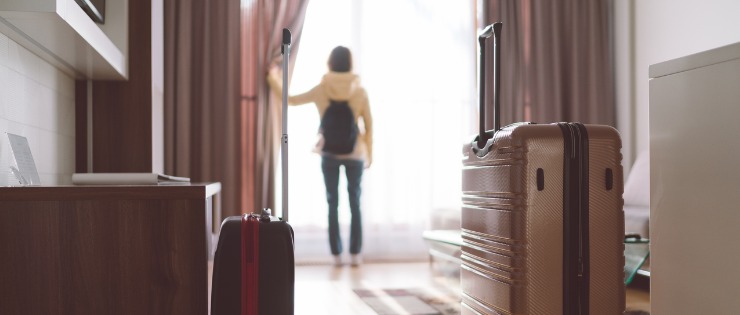
FAQs
Can I Purchase Travel Insurance Close to the Date I’m Due to Leave?
Yes, you can buy travel insurance close to your departure date, however you may not be covered for cancellation costs if you test positive before you leave. Some insurers require you to have purchased your policy more than 21 days before the departure date to be able to claim for cancellation costs. Many insurers recommend taking out a travel policy at the same time that you book your trip to make sure you’re covered.
What Can I Do to Reduce the Risk of Contracting COVID-19 While Travelling?
Travelling usually means you’re in contact with more people in different locations than if you were at home, so it’s best to be vigilant to reduce some of the risk.
In many locations it’s hard to do, but try to avoid crowds where you can. Carry hand sanitiser with you and use it regularly, particularly after coming into contact with high-touch surfaces. Choose outdoor restaurants and activities over indoor, where possible. When you can’t physically distance yourself, wear a mask.
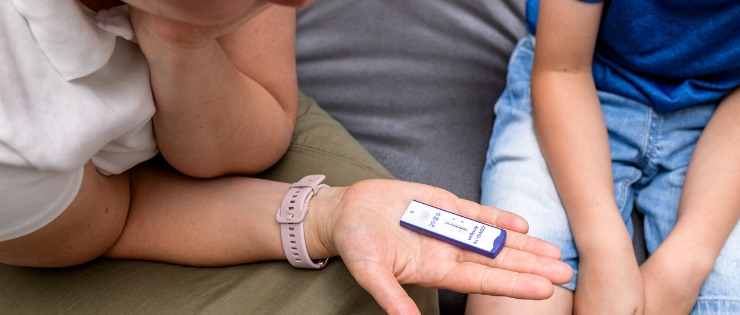
Should I Take Rapid Antigen Tests (RATs) With Me?
Most countries have RATs readily available to buy, but it’s a good idea to take some tests with you. They’re lightweight and don’t take up much room. Remember to read the instructions to see what temperature the test should be stored at. Try to keep the tests in your luggage rather than in a bag you carry around with you all day so they stay cool. Most insurance policies won’t cover the cost of any RAT or PCR tests. HIF has partnered with AMA WA that allows members to purchase RATS at a universal low price.
Will I Need to Get Tested Before I Leave or Return to Australia?
Every country and airline has their own requirements for entry, so it’s good to do your research to know what you need to do before each flight you board. Don’t forget about the countries you are transiting through either.
Do I Need to Be Vaccinated for COVID-19 to Travel?
Some countries grant entry to people who are unvaccinated, but they may have other restrictions such as proof of a negative PCR or RAT test, taken no more than two or three days earlier. Some of the countries that currently welcome unvaccinated travellers include Greece, Turkey, Slovenia, United Arab Emirates, Spain, Portugal, Mexico, Maldives, Italy, Sweden, Egypt, Norway, South Africa, Norway, Luxembourg, Bahamas and Maldives.
Remember, it’s not just COVID-19 vaccinations that you need to check. There are other vaccinations that are still required to enter or return to some countries. Check the Australian Department of Health website for more information.
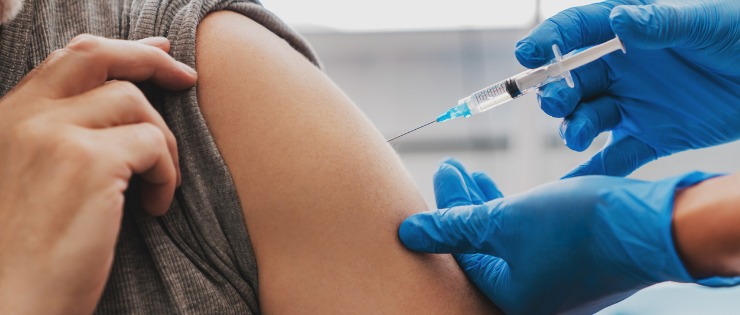
Has Travel Insurance Increased in Price?
Many Australians haven’t travelled in more than two years, so it’s likely the cost of your travel insurance has increased, like most things you purchased two years ago. If your travel policy allows you to claim for expenses related to COVID-19, it’s likely that the cost of your policy is higher.
Do I Need Travel Insurance?
Thailand, Singapore, Israel, Costa Rica, and Tahiti are among the countries that have made travel insurance mandatory for all visitors. It’s important to carefully check the requirements of the countries you’re visiting before you leave home so you know what you need to organise in advance.
Is There a Limit to the Value of Cancellation Expenses Covered?
Yes, most policies have a limit on how much you can claim. Expenses can climb quickly when you’re paying for an additional seven (or more) days of hotel accommodation and rescheduling flights. Some limits are $2,500, so beware that you may still be out of pocket despite having travel insurance.
Most travel insurance policies don’t cover your costs if you have to cancel your trip due to travel restrictions such as a lockdown at home or the destination country.

Do All Travel Insurers Cover All Countries?
No, most travel insurers won’t cover you for travel to countries that have a current advice warning of:
You can find more information on the Smartraveller advice page. The threat level could be increased for a number of reasons. For example, a new COVID-19 variant of concern could cause a wave of infections in a country that the Australian government deems of higher risk than usual. With Russia’s invasion of Ukraine and the potential for war to break out elsewhere, the government may raise the threat level of other European countries.
It’s important to check regularly for changes to advice levels. Before taking out your policy, make sure you can cancel your trip if the threat level increases before your travel date and you prefer to stay in Australia. A standard travel policy won’t cover you for Level 4 destinations.

Need Travel
Insurance?
We've got you covered
Call 1300 134 060 or Get a quote
Where to Get COVID Travel Insurance
HIF is proud to offer some fantastic travel insurance plans that are also great value for money. Get an instant quote for HIF Travel Insurance online today and get the essentials in place as you plan your next trip. With the ever-changing travel landscape during the COVID-19 pandemic, our travel insurance policies are updated as needed, so make sure that you stay up-to-date with the latest information